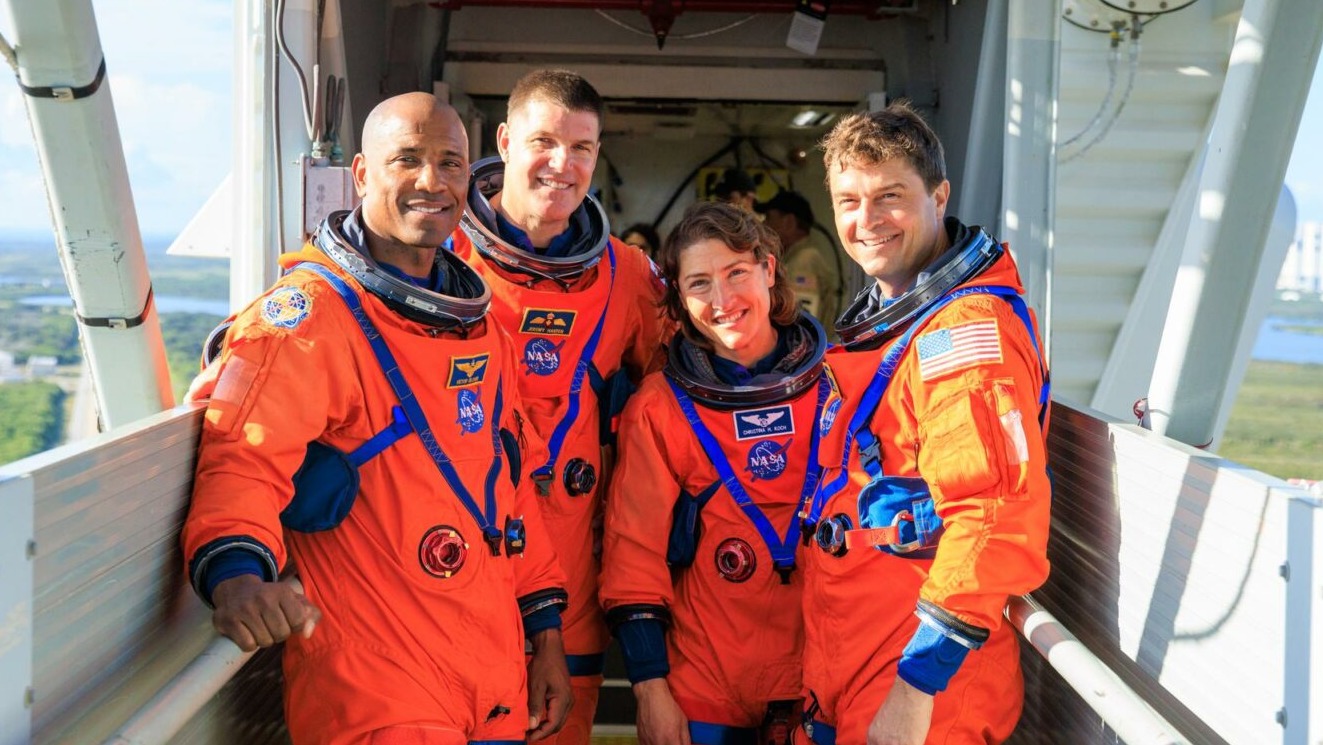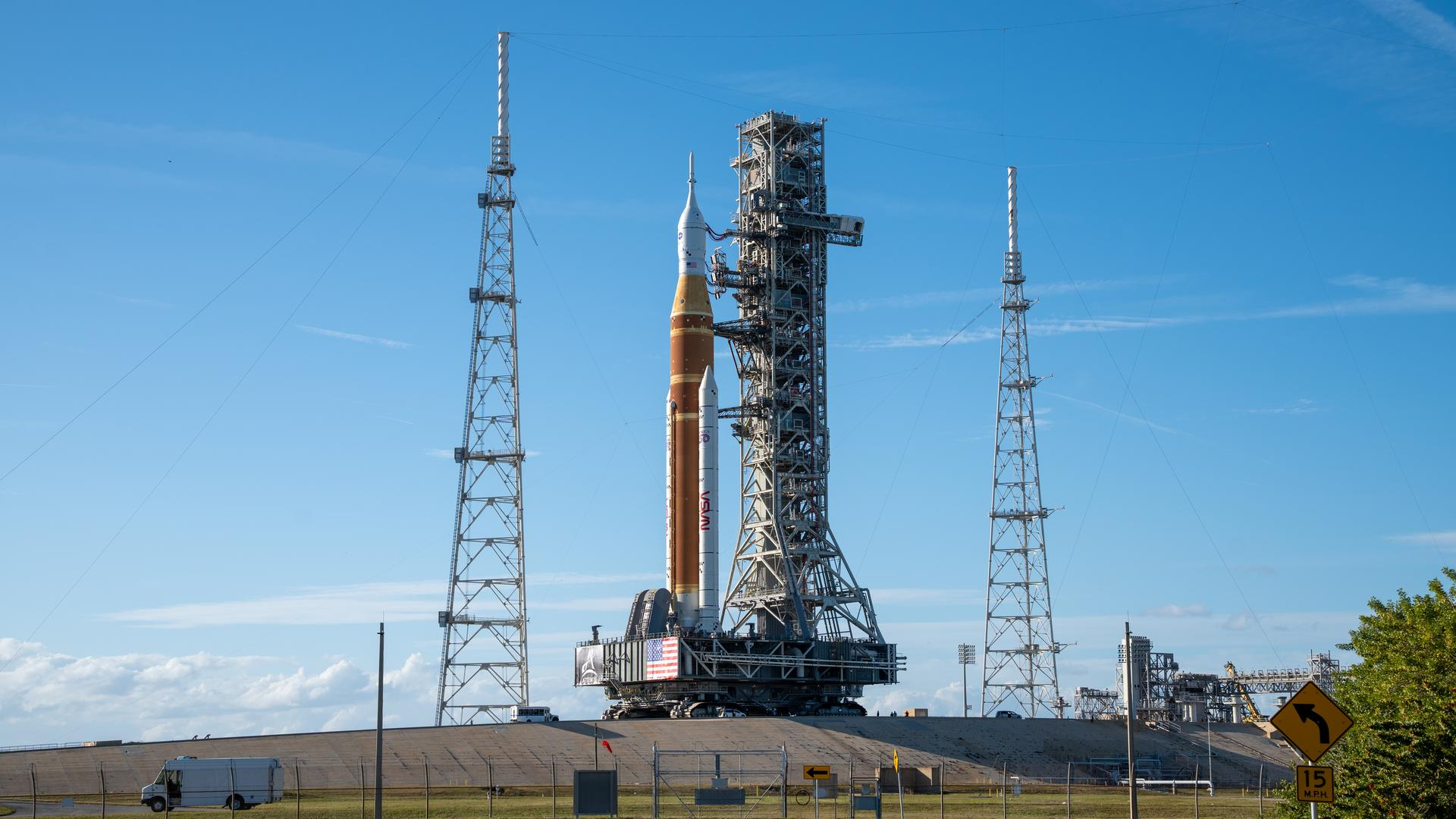Artemis moon program will prioritize ethics, good of society, NASA says
Artemis 2 includes a diverse crew, and future astronaut missions aim to fly further in that dimension.

A new NASA report aims to take the agency's Artemis moon program as an example of how to implement "ethical and societal considerations" in other efforts.
Artemis aims to land humans on the moon again by 2025 or 2026 with Artemis 3, depending on how technical and mission development goes.The agency also has named its first moon crew in more than 50 years, with the four Artemis 2 astronauts set to fly around the moon no earlier than late 2024.
"As we plan for upcoming missions, we have the opportunity (to) make sure they reflect NASA's core value of inclusion and bring in new voices, ensuring we have a truly global, representative alliance as we explore deep space for the benefit of all," Ellen Gertsen, who was then NASA acting associate administrator for technology, policy, and strategy, said in a statement on Thursday (Sept. 21). (Charity Weeden was just named to that post in a permanent position.)
The 65-page report summarizes the discussion from a workshop in April held by the agency's Office of Technology, Policy, and Strategy (OTPS). "Participants engaged in sessions on key ethical challenges of spaceflight and how ethical, legal, and societal implications were handled by other scientific endeavors with potentially profound societal effects," NASA officials wrote in the same statement.
Related: Nonbinary astronomers need better support from their field, study finds
The report is an interim stage as NASA considers what policy questions will come up with the first moon landings in half a century. Key findings so far in discussions included:
- Sharing the benefits of space activities
- Reflecting on core values for exploration
- Defining sustainability for activities on the moon and considering the environmental impacts of space activities on Earth
- Shared access to key sites on the moon
- Cultural sensitivities surrounding payloads and activities on the moon
"OTPS will consider potential decisions with ethical and societal implications as part of that study and subsequent discussions with NASA leadership," agency officials wrote in the report. "Separately, OTPS is formulating ways to converse on these topics with NASA's international partners, understanding how they feel ELSI (ethical, legal, and societal implications) should be considered."
Breaking space news, the latest updates on rocket launches, skywatching events and more!
Results will be conveyed at upcoming workshops and conferences, including with the American Institute of Aeronautics and Astronautics and the Lunar Exploration Advisory Group, which represents the lunar science community, to gain more input and move forward with the project.
Related: Black astronauts celebrate ISS, Artemis 2 moon missions while reflecting on history
Artemis 3 will not mark the first time that NASA has landed humans on the moon, of course. Between 1969 and 1972, 12 astronauts walked on the moon under the agency's Apollo program, which also ran other missions in lunar orbit and Earth orbit. But the pool of astronaut selection was narrow back then, partly because the military (from which NASA drew most astronauts at the time) was mainly open only to white men and partly due to society at large being less inclusive than it is today.
Artemis aims to broaden the base of people who explore the moon. Specifically, NASA has pledged it will have the first woman and the first person of color walk on the moon in the very near future. Artemis 2, incidentally, includes Christina Koch and Victor Glover, who will become the first woman and first Black person, respectively, to leave low Earth orbit.
Other dimensions of diversity — across dimensions such as gender, sexuality or cultural background — are likely also coming with future crews, as active astronauts at NASA already represent Native Americans, LGBTQ+ groups and various nationalities, to name some examples.
NASA also will bring international agencies along for the ride for the first time under its Artemis Accords, which has more than two dozen nations on board. While all partners agree to peaceful exploration norms under NASA, some are contributing moon hardware as well to spread out the cost.
Indeed, Artemis 2 includes the first non-American assigned to any moon mission: the Canadian Space Agency's Jeremy Hansen, in exchange for that agency's contribution of the robotic Canadarm3 for NASA's future moon-orbiting Gateway station. Future missions will include astronauts from the European Space Agency and the Japan Aerospace Exploration Agency, based on NASA and other agency announcements in past months.

Elizabeth Howell (she/her), Ph.D., was a staff writer in the spaceflight channel between 2022 and 2024 specializing in Canadian space news. She was contributing writer for Space.com for 10 years from 2012 to 2024. Elizabeth's reporting includes multiple exclusives with the White House, leading world coverage about a lost-and-found space tomato on the International Space Station, witnessing five human spaceflight launches on two continents, flying parabolic, working inside a spacesuit, and participating in a simulated Mars mission. Her latest book, "Why Am I Taller?" (ECW Press, 2022) is co-written with astronaut Dave Williams.
